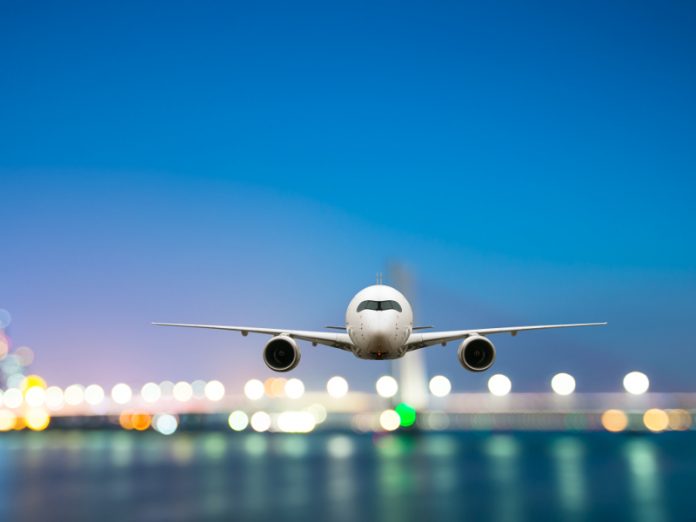This article is written by Arun Nair, pursuing a Diploma in Advanced Contract Drafting, Negotiation, and Dispute Resolution from LawSikho.com.
Table of Contents
Introduction
Has it ever happened to you that you were sure you bought a ticket for one airline, but when you showed up at the airport, you got directed to another terminal, gate, a section of an airport, to another airline? You soon realise or, are informed, that the flight you’re about to board is a ‘codeshare’ flight. This is a way for airlines to offer more routes, sell more seats on the plane, and keep prices low for the passengers. A ‘codeshare agreement’ is a type of agreement between two or more airlines. It is a kind of cooperative agreement under which two or more two airline companies sell each other’s seats on a single route and provide more destination options to the passengers.
It is possible that the airline in which you have booked a seat is operating on another flight number or code under the alliance. Let us understand this with the help of an example – there is a codeshare agreement between Jet Airways and Etihad Airways, if you have booked a JA flight ticket from Delhi to Paris and your flight will go via Dubai, then, in such a condition, JA will take you from Delhi to Dubai and from there, EA will take you to Paris.
What’s the benefit for the passengers?
- In addition to the airline company in which passengers have been booked under the codeshare, they also get the opportunity to travel to another airline company with which it has an agreement.
- Under this, the passengers get connectivity for more flights and destinations and get seats easily.
- You get a single booking window to multiple airline companies and flights.
What benefits do airlines derive from this agreement?
Codeshare allows airlines to earn revenue by selling tickets for partner airlines. For instance, if you book Indigo’s ticket from Dubai to Mumbai and Indigo has a codeshare with Etihad then in that case you can travel with Etihad, and Indigo will also benefit from selling Etihad seats. In addition, codeshare gives airlines access to those cities where it does not operate flights without having to offer extra flights using this carrier network.
Under these agreements, if an airline aircraft has any problem during the flight, then that airline can operate the aircraft of the other airline company with which it has a codeshare agreement in place. 
Assessment of operational viability of code-sharing for a nation
In general, code sharing is permitted within a country after assessing the following:
- A bilateral agreement between the governments of the carriers involved.
- Advantages of expansion of services and tariff options for the public and thereby promoting the industry.
- The impact of the codeshare on airline ‘competition’ within the country.
How does code-sharing work?
A code-share agreement between two air carriers allows the marketing airline to sell seats on a flight operated by another airline which is known as the administrating airline, with the airline code and flight number of the marketing airline. This aids in seamless linkage for the passengers. Code-sharing airlines usually coordinate their schedules and coordinate luggage handling as well.
Policies/rules/regulation of code-sharing arrangements : a global overview
There are multiple rules and regulations with regards to the code-sharing arrangement, which the airlines are bound to adhere to depending on the region they cater to:
- For instance, in Europe, the regulations are provided by European Union Aviation Safety Agency (EASA), which lays down the provisions on code-sharing with the regulations applying to Third Country Operators (TCO) under ‘Regulation No 965/2021.’ This means that the TCO shall undergo audits for verification of compliance and continuous compliance with ICAO standards.
- The International Civil Aviation Organization (ICAO), an organisation funded and directed by 193 national governments, functions to research new air transport policies and standardization of innovations, although the stipulations of ICAO never supersede the primacy of national regulatory requirements. It provides for a ‘Manual on the Regulation of International Air Transport’ which features within it the best guidelines for code-sharing arrangements between airlines internationally.
- In the US, it is the United States Department of Transportation that prescribes the regulation for code sharing. It states, “the US and foreign air carriers that want to operate code-shared services, must first obtain authorisation from the Department in the form of a Statement of Authorisation under Part 212 of the Department’s ‘Economic Regulation, 14 CFR Part 212.’ Under the regulation, the Department approves the applications if it determines that it is in the public interest.”
- In India, the Code Sharing arrangement is presently guided by the National Civil Aviation Policy (2016) (NCAP), a comprehensive policy that was brought in for developing a conducive and encouraging civil aviation sector in India. This policy covered multiple aspects of the civil aviation industry. It was finalised on the basis of inputs and feedback received from the public, other stakeholders, and experts. Its main objectives were thus:
- Establish an integrated ecosystem that will lead to significant growth in the civil aviation sector, which in turn would promote tourism, increase employment and lead to balanced growth.
- Ensure safety, security, and sustainability of the aviation sector through the use of technology and effective monitoring.
- Enhance regional connectivity through fiscal support and infrastructure development.
- Deregulation, simplified procedures, and e-governance.
- Promote the entire aviation sector chain in a harmonised manner.
“The policy with respect to code sharing, was as follows: Domestic Code-Share Points in India shall be liberalised within the framework of Air Services Agreement (ASA; Indian carriers will be free to enter into domestic code-share agreements with foreign carriers to any point in India available under the respective ASA; For the designated carriers of India, international code-share arrangements with foreign carriers will be liberalized as per the provisions relating to code-share arrangements in the ASA, and no prior approval from Ministry of Civil Aviation (MoCA) will be required. The designated carriers of India simply need to inform MoCA 30 days prior to starting the code-share flights. However, if it is found that it violates the ASA, the same shall be disallowed, notwithstanding prior intimation given to MoCA; A review will be carried out as and when required on need basis and at least once in 5 years to consider the requirement of further liberalization in code-share agreements.”
As per Director General Civil Aviation (DGCA), India has a Bilateral Air Services Agreement with over 100 countries as of today.” (GoI 2016)
Kingfisher Airlines and Continental Airlines
This article delves into the code-sharing agreement that was entered between an Indian airline operator and an airline that operated out of the United States of America.
Company profile : Kingfisher Airlines (KFA)
KFA started in Bangalore in May 2005 under the Chairmanship of Mr. Vijay Mallya, the owner of United Breweries Group. In the year 2007, KFA (through UB group) bought a 26 percent stake of the Bangalore-based budget airline Air Deccan. Deccan had strategic importance to KFA for circumventing government regulations on obtaining permission to fly on international routes. The Government of India permitted only those airlines having 5 years of operational experience and owning 20 aircrafts to fly on international routes. Deccan afforded KFA this advantage and it was able to operate inter- national services. The alliance made KFA the largest player in the Indian skies
Company profile : Continental Airlines (COA)
Continental Airlines, Inc. is the 5th largest U.S. airline, based on 2001 revenue passenger miles (RPMs). The Houston-based company carries passengers, cargo, and mail throughout the world serving more than 200 airports worldwide, most of them in the US and Latin America.
The regional sector of COA was spun off in an IPO as ExpressJet Airlines. Continental also approached Delta Air, another US airline for a possible merger that failed. Thereafter Continental, Delta, and Northwest entered into a massive ten-year code-share agreement. Together these 3 airlines catered to a 36 percent share of domestic traffic. COA ceased operations in 2012 and got merged with United Airlines (another US carrier).
Code sharing between KFA and COA : background
In the year 2007, two of the biggest airlines existing at that point in time, Kingfisher Airlines of India and Continental Airlines of the United States decided to enter into an arrangement which in addition to the code-sharing agreement consisted of a comprehensive partnership with respect to the reciprocity of, frequent flyer program of both the airlines as well as airport lounge access for the passengers.
Continental-operated flights between Newark Liberty International Airport and Delhi. As a result of this agreement, Continental (Marketing Airline) placed its code on Kingfisher (administrating airline) flights connecting to Continental’s daily flights between Newark and New Delhi, and the new service between New York and Mumbai. It was now possible for passengers to travel on connecting flights between Continental and Kingfisher with single check-in for all flights, including the issuance of e-tickets, boarding passes, and checked-in baggage to their ultimate destination.
Essentials of the airline code-sharing agreement between KFA and COA
Both KFA and COA assented to accepted industry practices and arrangements relating to the code-sharing, including those specified by IATA Resolutions. As per the agreement, “the Parties would use commercially reasonable efforts to coordinate their service schedules to maximise the convenience, minimize the waiting time of passengers making connections between the code-shared flights and other flights operated by the parties; provided that neither party is obligated to operate specific flights or service schedules and each party retains the right to determine the service schedules of its own flights.”
Important clauses are as follows
1. Codeshare service
- Parties have designated certain flights on which codes have been placed by the marketing airlines, and the administrating airline agrees to provide to the ‘Codeshared Passengers’ the same standard of customer service as it provides to its own passengers in comparable classes;
- Parties shall use commercially reasonable efforts to coordinate their service schedule and reduce any disruption to codeshared passengers;
- Either Party may, at its sole discretion, discontinue code-shared flights.
- The Parties shall cooperate in matters of security procedures, requirements, and obligations at all airports served by the code-shared flights.
- The frequent flyer participating carrier agreements shall govern the participation of each party in the other party’s frequent flyer program.
2. Cost bearing
Each party agrees to bear its own costs and expenses of performance under the agreement, including, but not limited to, any systems to support automation of procedures, software, maintenance, setting up ticket counters, signage, and other such facilities. Each party shall retain all the rights, title, and interest in systems, signage, equipment, and facilities funded by it. Ownership of jointly owned items shall be determined mutually by the parties.
3. Marketing and promotion
- The codeshare flights shall be marketed and promoted by the marketing airline and any costs incurred for publication of marketing materials, airline guides, CRSs, schedule information shall be borne by the marketing airline.
- All information and advertisement materials produced in relation to the agreement shall clearly identify both the parties and all marketing and promotion was subject to prior consent among the parties and costs of such joint advertisement, marketing, promotion shall be shared based on mutual agreement.
- All parties will ensure that their respective advertisement and promotional activities comply with all applicable governmental laws, rules, regulations, for the time being in force.
- Neither party shall use the other party’s names, logos, trademarks, copyrights, goodwill, or other IPR in any marketing, advertising, or promotion, except where each specific use has been approved in advance by the other party.
- Except as expressly provided herein, no right, property, license, permission, or interest of any kind in the use of any names, logos, trademarks, copyrights, goodwill, or IPR owned by a party is intended to be given to the other party within the agreement.
- Parties agree to use names, logos, trademarks, copyrights, goodwill, or other IPR in a manner approved in advance and in writing by the party owning such names, logos, trademarks, copyrights, goodwill, or other IPR.
- Parties agree that all advertising and promotional materials bearing names, logos, trademarks, copyrights, goodwill, or IPR of the other party in relation to this agreement shall meet the quality and standards as set forth by the party owning it.
4. Training
Parties agree to arrange, at its own cost, initial and recurring training of its personnel to facilitate the operations laid down in the agreement. This shall include relevant training with regards to operations at airports, sales, ticket reservations, ticket counters, in-flight service, and other such arrangements.
5. Force majeure
- Party shall not be held liable for any loss, injury, damage to the other party arising directly or indirectly, from acts of God, governmental actions or sanctions, riots, war, labour disputes, quarantine restrictions; fire, earthquake, fog, flood, or other weather-related reason, refusal of clearances, permission by any competent authority; breakdown damage to a part of the destruction of aircraft, shortage or unavailability of fuel; or any other acts, matters which are beyond the control of the parties which hinder performance.
- Provided, the party so affected shall take all reasonable steps to cure such non-performance once the force majeure event lapse.
6. Confidentiality
- Parties to the agreement shall ensure that its officials, directors, officers, employees, affiliates, at all times, maintain strict confidentiality in respect of all information of the other party including, of its associates and affiliates, received directly or indirectly. Except as necessary to obtain any government approvals or otherwise, parties shall notify the affected party immediately of such request.
- As agreed, parties shall return to the other party or destroy all copies of the other party’s confidential information in its possession including all copies stored on magnetic or other electronic media.
- The confidentiality clause under the agreement shall survive the termination date or expiration of the agreement for perpetuity or for a specified number of years.
7. Governing law
- The agreement shall in all respects be governed by and construed in accordance with the laws of ** (without regard to its conflict of laws principles) including all matters of construction, validity, and performance.
- Except as otherwise agreed or expressly provided in the agreement, any controversy, dispute, difference, disagreement, or claim between the parties arising under or relating to the agreement (a “dispute”), including any question concerning the validity, termination, interpretation, performance, operation, enforcement or breach of the agreement, must be referred to arbitration for final resolution.
- All disputes arising out of or in connection with the agreement would be finally settled under the Rules of Arbitration of the International Air Transport Association (“IATA”) in effect at the time of the submission of the dispute to IATA.
The aforementioned were some of the main clauses that KFA and COA must have included and chose to abide by during the course of their code-sharing arrangement with one another, not only for a smoother operation but also for safeguarding their own interests in the arrangement, considering the risks and sensitivity of the services involved and the industry that they were functioning in.
Conclusion
It can be noted that code sharing has been increasingly adopted by airlines worldwide whereby airlines enter into a legally binding agreement. A carefully drafted code-sharing pact allows airlines to have a cooperative relationship with other airlines that make their product offering competitive and the parties tend to gain from it. However, on the flip side, companies must understand that the margin for error is thin. In the event that parties fail to make the contract water-tight, they may have to bear the consequences and pay heavily for the lacunae. It is therefore advisable that the parties appoint domain experts and specialised attorneys/advocates to carefully understand and draft a code-sharing agreement.
References
- http://edition.cnn.com/2011/TRAVEL/07/11/snyder.codesharing/index.html?hpt=hp_bn12
- https://web.archive.org/web/20040417182437/http://www.railwayage.com/jan01/planes_to_the_trains.html
- https://abcnews.go.com/Business/FlyingHigh/Story?id=865304&page=1
- https://www.google.com/search?client=firefox-b-e&q=accc+australia
- https://www.flightglobal.com/networks/delta-and-latam-apply-to-dot-for-codeshare-approval/138732.article
- https://www.sec.gov/Archives/edgar/data/809023/000080902302000011/ba-aacodeshare.htm
- https://www.aviationpros.com/home/news/10385541/agreement-signed-between-continental-and-kingfisher-airlines
- https://www.transportation.gov/policy/aviation-policy/licensing/code-sharing
- https://www.referenceforbusiness.com/history2/50/Continental-Airlines-Inc.html#ixzz6wdTbJe5U
- https://www.icao.int/Pages/default.aspx
Students of LawSikho courses regularly produce writing assignments and work on practical exercises as a part of their coursework and develop themselves in real-life practical skills.
LawSikho has created a telegram group for exchanging legal knowledge, referrals, and various opportunities. You can click on this link and join:
 Serato DJ Crack 2025Serato DJ PRO Crack
Serato DJ Crack 2025Serato DJ PRO Crack










 Allow notifications
Allow notifications


